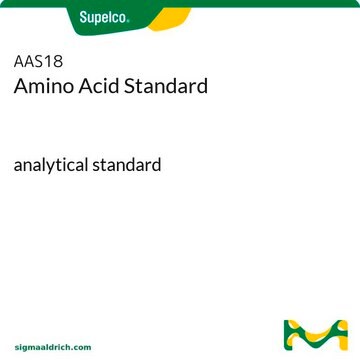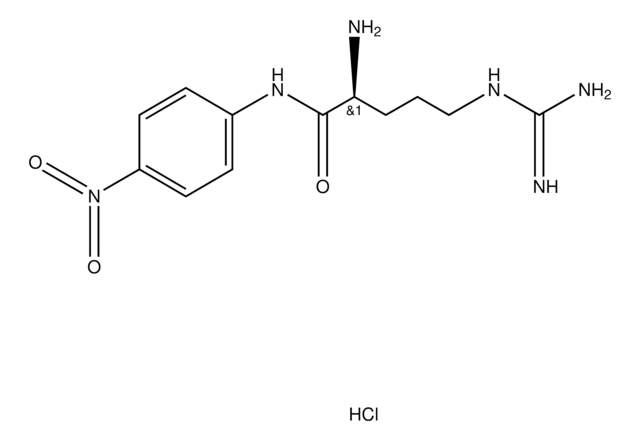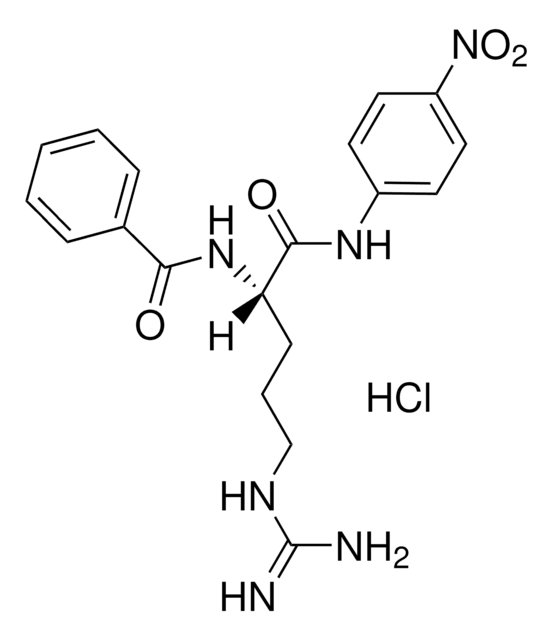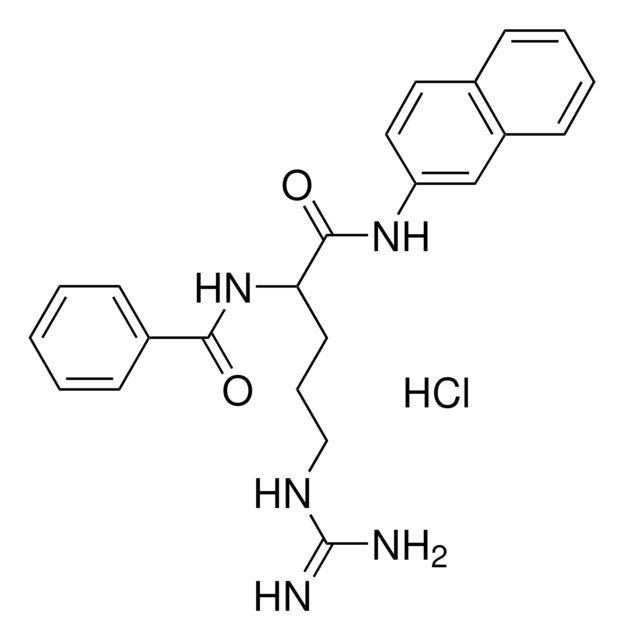B7632
N-Benzoyl-Phe-Val-Arg-p-nitroanilide hydrochloride
chromogenic, protease substrate, ≥98% (TLC), powder
Synonym(s):
N-Benzoyl-L-phenylalanyl-L-valyl-L-arginine-4-nitroanilide hydrochloride
About This Item
Recommended Products
Product Name
N-Benzoyl-Phe-Val-Arg-p-nitroanilide hydrochloride, protease substrate
Quality Level
Assay
≥98% (TLC)
form
powder
solubility
methanol: 20 mg/mL, clear, colorless to light yellow
storage temp.
−20°C
SMILES string
Cl.CC(C)[C@H](NC(=O)[C@H](Cc1ccccc1)NC(=O)c2ccccc2)C(=O)N[C@@H](CCCNC(N)=N)C(=O)Nc3ccc(cc3)[N+]([O-])=O
InChI
1S/C33H40N8O6.ClH/c1-21(2)28(40-31(44)27(20-22-10-5-3-6-11-22)39-29(42)23-12-7-4-8-13-23)32(45)38-26(14-9-19-36-33(34)35)30(43)37-24-15-17-25(18-16-24)41(46)47;/h3-8,10-13,15-18,21,26-28H,9,14,19-20H2,1-2H3,(H,37,43)(H,38,45)(H,39,42)(H,40,44)(H4,34,35,36);1H/t26-,27-,28-;/m0./s1
InChI key
PYVSMZDQQUZGPF-JAQKLANPSA-N
Looking for similar products? Visit Product Comparison Guide
General description
Application
- N
- -Benzoyl-Phe-Val-Arg-p-nitroanilide hydrochloride has been used: as a substrate: for trypsin-like enzyme in the soluble and particulate fractions of the hyphae
- for the thrombin, recombinant and native batroxobin from snake venom
- for fibrinolytic enzyme aprE2 in amidolytic activity assay
Packaging
Substrates
Storage Class Code
11 - Combustible Solids
WGK
WGK 3
Flash Point(F)
Not applicable
Flash Point(C)
Not applicable
Personal Protective Equipment
Choose from one of the most recent versions:
Already Own This Product?
Find documentation for the products that you have recently purchased in the Document Library.
Customers Also Viewed
Protocols
Thrombin is an endolytic serine protease that selectively cleaves the Arg–Gly bonds of fibrinogen to form fibrin and release fibrinopeptides A and B.
Our team of scientists has experience in all areas of research including Life Science, Material Science, Chemical Synthesis, Chromatography, Analytical and many others.
Contact Technical Service
